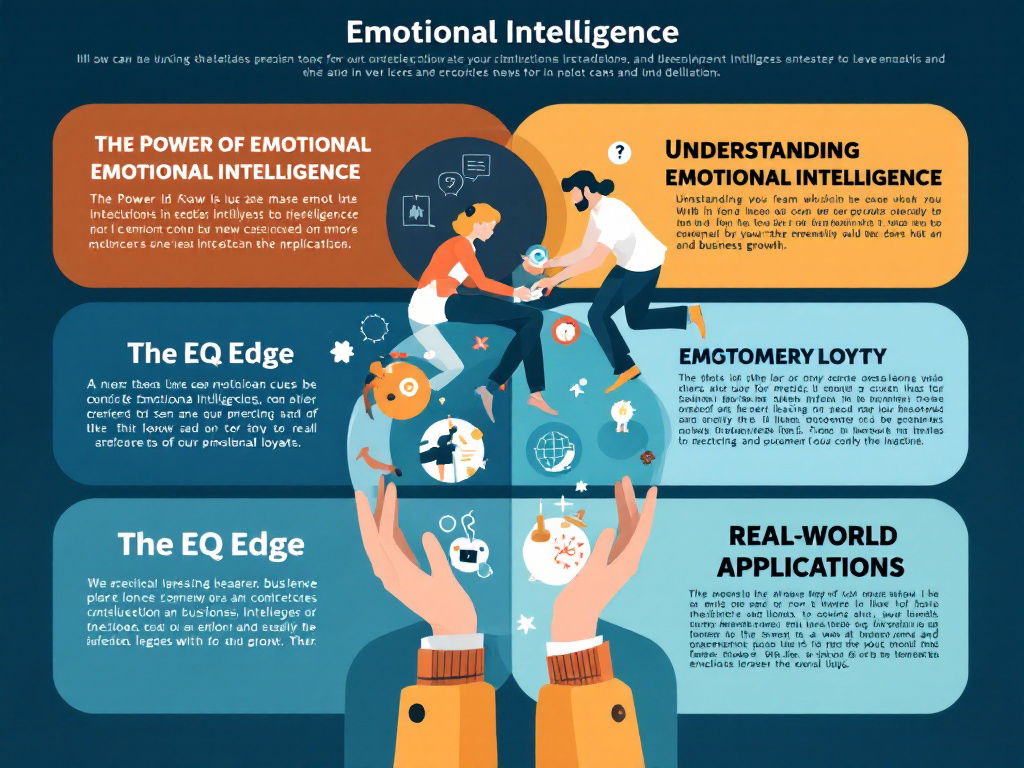The Power of Emotional Intelligence in Modern Leadership

In today's fast-paced and ever-changing business environment, the ability to lead with emotional intelligence (EQ) has become a defining characteristic of successful leaders. As a seasoned leader with over 20 years of experience, I've seen first-hand how EQ-driven strategies can transform organizations and drive sustainable growth.
Understanding Emotional Intelligence Emotional intelligence is more than just a buzzword; it's a critical skill that involves understanding and managing emotions—both your own and those of others. In a business context, EQ enables leaders to foster a positive work environment, make informed decisions, and build strong, empathetic relationships with employees, clients, and stakeholders.
The EQ Edge
The EQ edge in leadership is the ability to:
- Read and Respond to Emotional Cues: Leaders with high EQ can sense emotional undercurrents within their teams and respond appropriately, fostering trust and collaboration.
- Enhance Team Performance: By understanding individual team members' emotional drivers, leaders can tailor their approach to motivate and engage employees effectively.
- Drive Customer Loyalty: Emotional connections with customers lead to enhanced experiences and long-term loyalty, essential for business growth.
Real-World Applications
One of the most compelling examples of EQ in action is the launch of 'Harmony by 7tnine,' a project that required understanding the emotional aspirations of hotel owners and the expectations of their guests. This EQ-driven approach led to creating a brand that resonates deeply with its audience, setting new standards in the hospitality industry.
Conclusion
Emotional intelligence is not just a leadership skill; it's a transformative force that empowers organizations to navigate the complexities of the modern business world. By embracing EQ, leaders can unlock new levels of innovation, engagement, and success.